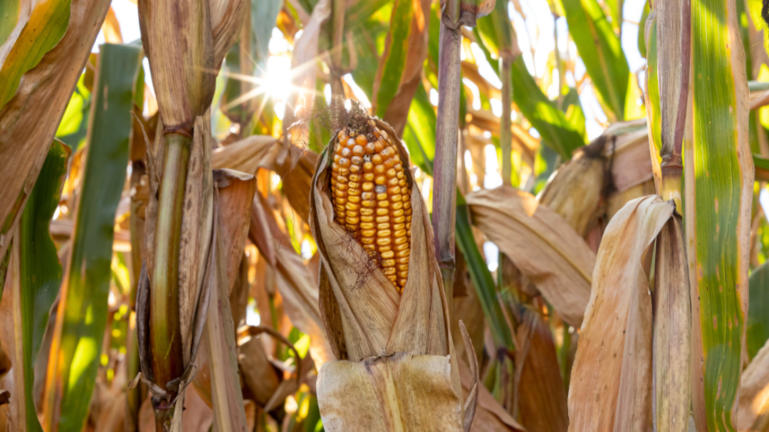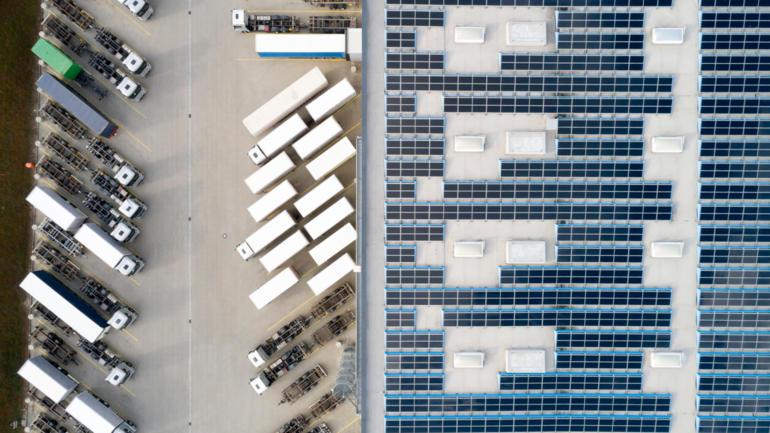Geneva, 8 November 2021 - Today at COP26, the World Business Council for Sustainable Development (WBCSD) announced the Banking for Impact on Climate in Agriculture (B4ICA) initiative in partnership with the United Nations Environment Programme Finance Initiative (UNEP FI), the Partnership for Carbon Accounting Financials (PCAF) and Environmental Defense Fund (EDF).
This new initiative aims to bring together banks with agriculture business portfolios and has already signed on leading banks, including Rabobank, Santander and Barclays, along with support from the Wells Fargo Foundation. Convened by WBCSD, the banks alongside the initiative’s partners will together develop best-in-class technical data-solutions to support themselves and their clients to align their financial portfolios in the food, agriculture, and land use space towards a Net Zero and Paris Agreement goals.
The food, agriculture and land-use sector currently contributes a quarter of all greenhouse gas (GHG) emissions. Announcements coming out of the climate conference (COP26) in Glasgow this week on combatting agriculture-driven deforestation and reducing global methane demonstrate the increased role of the sector in achieving 1.5 degrees Celsius.
Banks are in a crucial position to collaborate on how to support their clients in the food, agriculture and land use sector to transition to reducing emissions and help shape activity for the sector towards a net zero, nature positive and equitable future.
As banks recognize the need to decarbonize their portfolios and join initiatives such as the Net Zero Banking Alliance, they need to be able to measure and set targets for GHG emissions. However, the food, agriculture and land use sector faces significant challenges, especially at the producer level, with data gaps, accounting complexity, and low digitalization of GHG emissions across different regions and agriculture products and practices. It is therefore particularly challenging for banks to help clients reduce emissions in this sector.
B4ICA will enable banks to more accurately account for agricultural sector GHG emissions, enable methodology and framework consistency, and leverage best in class data and transparency tools. The initiative will support banks working collaboratively with their farming and agriculture clients to transition towards solutions for net zero, climate-smart agricultural practices in critical commodity supply chains and regions.
The collaboration of agri-banks is needed to develop climate technical solutions.
With the complexity and data gaps in the food, agriculture and land use sector and the need to align with industry standards and commitments, B4ICA provides a unique space for pioneering banks to collaborate in the pre-competitve space, together with technical experts and other critical stakeholders. All banks with significant agriculture business portfoliosare invited to contact WBCSD for more information on joining and tackling this challenge.
Diane Holdorf, Executive Vice President, WBCSD said:“ The Banking for Impact initiative is a great example of the finance sector taking climate action for agriculture. Banks need a collaborative approach for data driven tools to drive consistent, credible, science-based investment decisions. WBCSD, together with partners, is leading this work as a key lever to transform our food systems.”
Eric Usher, Head of UNEP FI said: "Agriculture is one of the sectors with the highest GHG emissions, yet also one of the most challenging for banks to decarbonise. Under the UN-convened Net-Zero Banking Alliance, a major portion of the global banking industry by assets is now committed to set robust and science-based targets for agricultural loan and investment portfolios. UNEP FI is pleased to be working with partners on the B4ICA initiative, a unique platform which aims to overcome current data and methodological gaps for measuring GHG emissions in agricultural portfolios and support banks in aligning with ambitious decarbonization pathways
Giel Linthorst, Executive Director, PCAF said: “We can’t manage what we can’t measure. Helping banks understand the greenhouse gas emissions associated with the agriculture and land use sector will accelerate agriculture decarbonization. PCAF is partnering with the B4ICA initiative to help build the tools, methodologies and frameworks so that we can properly account for financed greenhouse gas emissions and support the sector’s decarbonization.”
Amanda Leland, Executive Director, Environmental Defense Fund said: “The finance sector has a critical role to play in supporting the transition to climate-smart agriculture and sustainable food systems. This initiative is essential to scaling the work that EDF has initiated with financial institutions to better align their portfolios with the science and economics showing viable pathways to reduce emissions, while boosting resilience of farms, banks, supply chains and rural communities."
For more information about the Banking for Impact on Climate in Agriculture (B4ICA), please contact Gretel Gambarelli, Senior Manager, Food & Forest Finance, or Pietro Grilli, Senior Associate, Food & Forest Finance.








